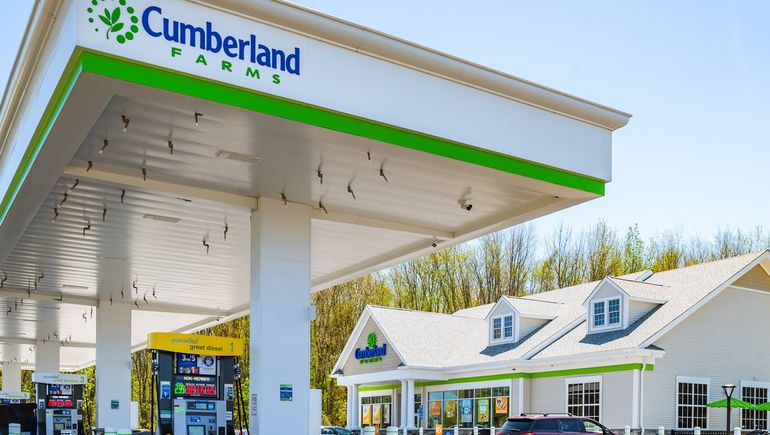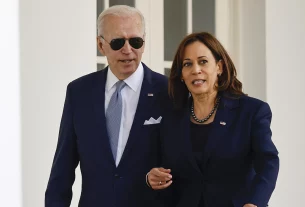|
Getting your Trinity Audio player ready...
|
News has surfaced over the past couple of weeks that Blackburn, U.K.-based c-store giant EG Group may be looking to sell its assets in the U.S. in an effort to relieve billions in debt.
EG Group, which operates domestically as EG America, came out of nowhere in 2018 when it acquired Kroger’s 762-site c-store network. Five years later, it has grown into one of the largest c-store players in the U.S, operating nearly 1,800 c-stores and gas stations under numerous banners.
Although reports are speculative as of now, EG has hinted at a possible move. In its most recent quarterly trading update, the retailer said it’s “committed to reducing total net leverage through debt reduction and free cash flow generation, with the Group actively exploring deleveraging options.”
If a sale of EG America’s c-store assets — which are scattered across 33 states — were to happen, it would surely cause massive ripple effects across the industry. Among those could be a further shift of power to the industry’s top players, decreased overall store count and a bidding war for EG’s assets, experts say.
Sale-leaseback rumors heating up
Early reports noted that if EG were to sell its U.S. assets, any sales would likely be structured as sale-and-leaseback deals. This means EG would find a buyer, and then lease back those stores, essentially becoming a renter. In this scenario, nothing about the stores would change besides the fact that EG wouldn’t own them anymore.
In EG’s case, the sale-leaseback would likely allow the company to raise capital while still operating its stores without owning them.
Sale-leasebacks aren’t new to the c-store industry, as retailers often “keep the dirt and lease the retail space,” or vice versa, depending on if they’re in growth mode or focused on retaining real estate, said Peter Rasmussen, founder and CEO of c-store consultancy Convenience and Energy Advisors.
“Many retailers do a mixture of both,” he said.
In 2016, c-store retailer Global Partners LP made a $67 million sale-leaseback deal with a real estate investor that included 33 of its locations in New England. At the time of the deal, Eric Slifka, president and CEO of Global Partners, said he expected the proceeds gained from the transaction to “reduce debt and provide financial flexibility to reinvest in and expand” its business.
That’s likely what EG Group would be looking to accomplish if it undertakes sale-leasebacks for its U.S. stores, experts say.
“If you own all of your sites, if you own the dirt that you operate on, you’re going to carry a lot more debt — and it’s going to be harder to expand,” said Rasmussen. “And if you’re leasing, especially if you’re leasing things that are part of larger developments, then it gives you the opportunity to grow stores faster.”
Inside a Turkey Hill c-store, one of EG’s brands in the U.S.
If EG Group does decide to undertake a sale-leaseback of its U.S, sites, it wouldn’t be an attractive acquisition opportunity for other c-store companies, who would likely prefer to invest their money into their own stores and control the operations, said Steve Montgomery, president of c-store consultancy b2b Solutions.
While this might be interesting to a large bank or private equity firm, Montgomery said he can’t foresee any retailer wanting to be the landlord of a retailer the size of EG Group.
“There’s no upside,” he said. “All you’re going to end up doing is being their landlord. Who cares?”
Who would potential buyers be?
If EG Group were to sell its U.S. stores outright, who would be the buyer?
That depends on whether EG were to sell all of its stores in one package or sell in sections across multiple companies, said Rasmussen. Selling in sections is something that seems likely if EG were to take the sale-leaseback approach, as the initial Sky News report noted “sale-leaseback deals,” and not one singular transaction, Montgomery said.
While a private equity company or bank would be an option for a full-blown buyout, if it’s a c-store retailer looking to purchase EG’s U.S. sites, Montgomery thinks it can only be one of the two biggest players in the U.S. space, since they’re the only ones who can afford an acquisition likely to be in the billions.
“If they go to sell them, who’s got that kind of money to buy?” he said. “I don’t know of any c-store company other than, perhaps, Circle K or 7-Eleven that could buy them all.”
History could point to Couche-Tard — Circle K’s parent company — as a candidate for an outright buyout, since the retailer was in merger talks with EG Group last April. No deal was made for undisclosed reasons.
“Somebody I talked to said [they] would bet on Circle K,” Montgomery said.
Todd Jenney, partner for c-store consultancy Business Accelerator Team, agreed that 7-Eleven and Circle K would be among the c-store retailers that could purchase EG Group’s U.S. assets. But he also noted to not rule out “the big oil companies,” which could be a possibility if those retailers “decide to get into the game.”
While many oil giants aren’t known for their c-stores, some are investing more into their retail arms. For instance, after selling about 700 of its company-operated c-stores in 2007, BP took full ownership of Midwest chain Thornton’s in August 2021, and brought its Ampm c-store brand to New York City last summer.
“Any of those [companies] would have plenty of units already in the market areas EG exists,” Jenney said.
But if EG Group does decide to sell its U.S. assets off in pieces to multiple companies, Montgomery foresees lots of interest from around the industry.
“If they start selling them off, if they actually sell the properties… maybe a small bidding war breaks out,” he said.
What does this mean for EG Group?
EG Group’s meteoric rise in the U.S. has been one of the central talking points in the c-store industry over the past five years. In early 2018, EG Group didn’t operate any c-stores in the U.S. Today, its nearly 1,800 locations makes it the fourth-largest chain nationwide by store count.
Jenney said with its fast-acquisition strategy, EG may have known all along it would eventually want to sell off its U.S. c-stores. He pointed to a larger trend he’s seen through the years of companies that have made major acquisitions and flipped them shortly after.
Case in point: In 1996, Circle K was acquired by petroleum refiner and marketer Tosco Corp. for $900 million, but was sold five years later to Phillips Petroleum for $7.5 billion. Just a year after that, Couche-Tard acquired Circle K. Additionally, in 2014, natural gas company Energy Transfer Partners acquired Susser Holdings — the former operator of Stripes Convenience Stores — for $1.8 billion, only to flip the assets to Sunoco LP a year later.
“I think that if you watched over the years, the companies that have gone after acquiring locations at the pace they have, [selling them off] is usually their end game,” he said.

Loaf ‘N Jug c-stores is one of the many brands EG operates in the U.S.
Moving forward, Jenney said he wonders if this means EG is looking to leave the U.S. c-store space altogether, or potentially explore another acquisition.
“If it was successful for them, they may try to make another similar type acquisition and sell down the road,” he said.
Rasmussen also said he wasn’t surprised by the news, but for a different reason. He noted that EG potentially selling its U.S. assets not long after acquiring them could simply be a “sign of the times in a rising interest rate environment.”
“They’ve expanded rapidly in location count, but like all things, some people want to start a business or acquire a business and hold it for multiple generations, [while] others want to buy, sell and differentiate based on the time,” he said.
Montgomery is more curious as to why EG might be looking to sell off its U.S. sites. He pointed to the company’s recent trading update, which states that the success of its U.S. sector offset a “weaker U.K. trading” during the period.
“If the U.S. [stores] are something that raised up your results — why are you selling them?” Montgomery said.
This points back to EG Group’s debt. The Sunday Times reported that about $8.6 billion of that debt is falling due in 2025.
Up until this point, EG’s acquisitive route to growth has “largely been financed via debt,” said Bryan Roberts, global insight leader for the U.K.-based research firm IGD. And while this alone isn’t an issue, it could become one in an environment of rising interest rates. The sale of EG’s assets could “be a way to pay down that debt directly,” he said.
Montgomery also noted that a lack of consistency from banner to banner within EG’s U.S. network could have caused some recent troubles for the company.
While the retailer previously announced it would expand its SmartPay Rewards platform used at Cumberland Farms to all of its locations in North America — and last year, began converting its Tom Thumb c-stores to Cumberland Farms locations — Montgomery argued that one company operating so many banners makes it challenging to keep track of the “non customer-facing” aspects of the business, which could cause headwinds.
“Unless that’s all together, you’re running a bunch of different companies — and that’s very difficult,” he said.
In terms of how a potential sale of EG’s assets in the U.S. could impact the rest of the c-store industry, at a basic level, it would cause a nationwide decrease in store count — which just broke a four-year downward trend — Jenney said.
“Anytime [there’s] a sale of that size, there’s going to be some units that are just going to go away completely,” he said. “If they’ve got good real estate, they could be used for something else.”



